Hedhvick Hirav
Hedhvick Hirav is a dedicated EV researcher and editor with over 4 years of experience in India’s growing electric vehicle ecosystem. Their contributions have been recognized in leading sustainability publications and automotive journals.
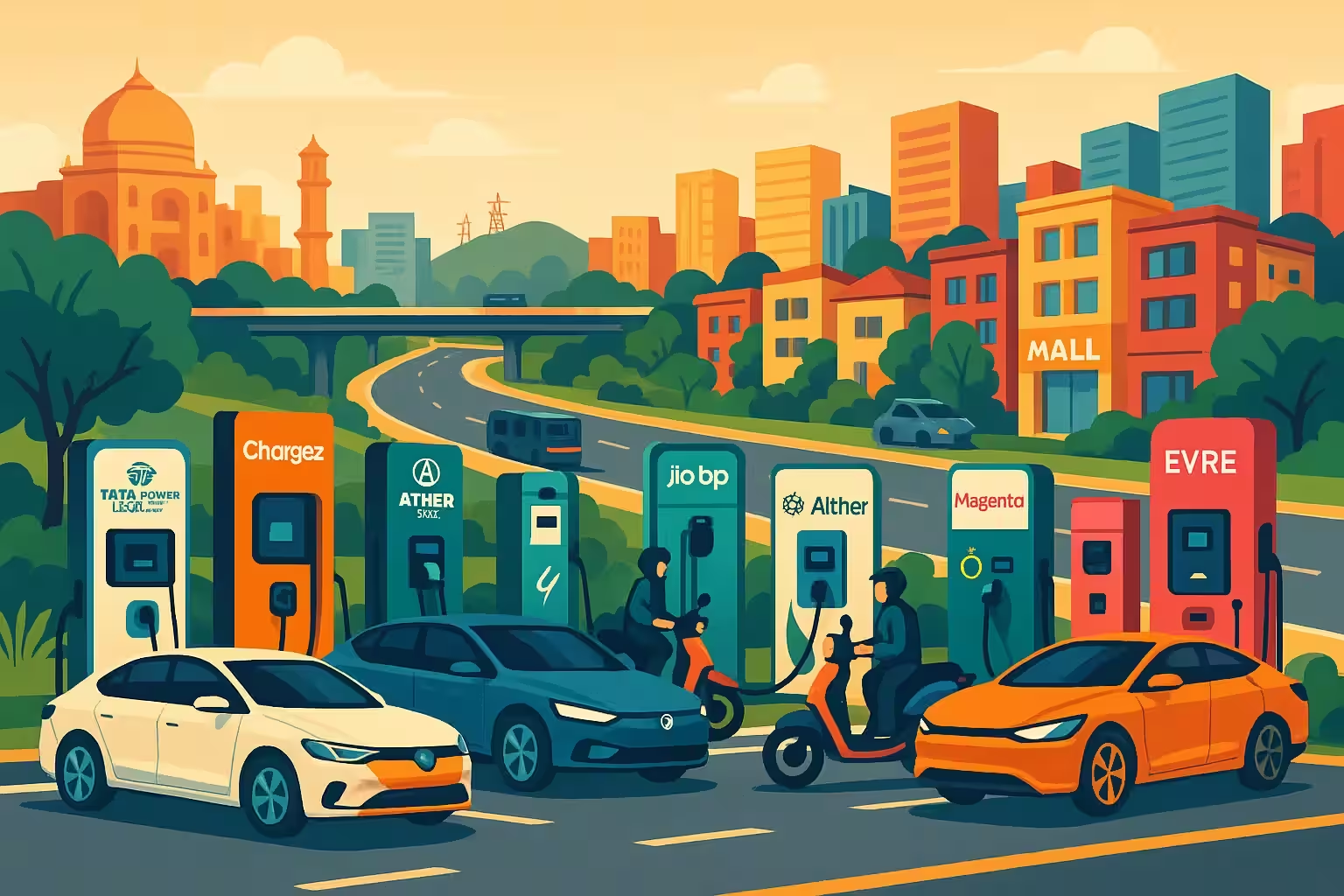
Which is the Best Electric Car in India 2025?
You are not alone when you have scoured the best electric vehicle (EV) in India in 2025. With the increasing popularity of EVs and EV incentives by the government and other factors like the development of battery technology, more Indian citizens are now considering the option of choosing electric cars and SUVs as their next choice vehicle. So how do you decide which EV you think is best in 2025? This guide will equip you with all the latest facts, comparison, user experiences, and expert knowledge that you need to make an informed choice.
The chart can be discussed in more detail in the electric vehicle in India 2025 infographic.
So Why is an Electric Vehicle the Best Option in India in 2025?
The most suitable electric car in India in 2025 can be different due to several Indian-specific factors. You must not only consider the price, but also the range, charging network, after sales support, performance and government incentives to help you negotiate your total cost of ownership.
This is what to look at:
- The EV Range: How many miles on a single gas? The range of 300-500km is needed in Indian cities and intercity travel.
- Charging Infrastructure: are there convenient fast chargers? Check to see which brand has a wide network of charging stations or at-home charging.
- Price and Incentives Does the car qualify to FAME-II or local subsidies? As a percentage of final on-road price considering all discounts.
- Performance: How is the pick up, handling and even the ride comfort considering the Indian condition of the road?
- Maintenance Reliability Is the brand well networked in service? What is battery warranty?
- Options: Connected technology, safety scores, music system and comfort that can serve family or business.
The best players in 2025 are not only those that have fantastic specifications on paper, but they are also tried in the Indian conditions. When choosing a specific option, it is always wise to look at the recent reviews, user forums and real life experience.
Have You Listened?
NITI Aayog and CEEW estimate that the Indian EV market will expand at a 40 per cent compound annual growth rate and has forecasted that over 1.5 million electric vehicles will be sold in India by 2025 alone.
Other Questions
Is it worth purchasing an electric vehicle in India in 2025? With the improved charging infrastructure and government subsidies, high fuel prices and other factors, owning an EV in India in 2025 is a more feasible and economically viable concept, than ever before.
What are the Top 10 EVs in India in 2025?
We will now compare the top 10 electric cars available in 2025 on a comparative basis. This list is topped on the basis of user ratings, sales, expert reviews, and on road performances.
| Model | Ex showroom, Delhi (Lakhs) | Real life range (km) | 0-80(%) fast charging time (min) | Battery warranty (years/km) | Boot Capacity (L) | Main Features | Charging Network |
|---|---|---|---|---|---|---|---|
| Tata Nexon EV | 15.5-19.0 | 325-465 | 56 min | 8/160,000 | 350 | Sunroof, iRA Connected Tech | Tata Power |
| MG ZS EV | 18.9-24.6 | 420-460 | 60 min | 8/150,000 | 470 | ADAS, Panoramic Sunroof | 1000+ points |
| Hyundai Kona Electric | 21.0-24.0 | 452 | 57 min | 8/160,000 | 332 | Ventilated Seats, BlueLink | Hyundai Grid |
| Tata Punch EV | 10.9-13.5 | 315-421 | 56 min | 8/160,000 | 366 | Arcade.ev, 5-star Global NCAP | Tata Power, 2000+ points |
| BYD Atto 3 | 24.0-26.0 | 420-480 | 50 min | 8/150,000 | 440 | 360° camera, LFP blade battery | BYD Partner, 800+ points |
| Mahindra XUV400 EV | 15.9-19.4 | 375-456 | 50 min | 8/150,000 | 378 | Dual zone AC, Adrenox | Mahindra, 1000+ points |
| Tesla Model 3 (Imported) | 45.0-50.0 | 450-520 | 30 min | 8/160,000 | 425 | Autopilot, OTA Updates | Tesla Superchargers (limited) |
| Citroen eC3 | 11.6-13.0 | 320 | 57 min | 7/140,000 | 315 | Connected Care Technology, 10.2 Screen | - |
| Kia EV6 | 60.0-65.0 | 500-550 | 18 min (350 kW DC) | 8/160,000 | 520 | Level 2 ADAS, GT Line | Kia Charge, 1000+ points |
| Comet EV | 7.9-9.6 | 230-270 | 60 min | 8/120,000 | 210 | Smart Drive, Compact City EV | MG Charge, 1800+ |
When we examine some of the key competitors in detail the key factors to consider are:
- Tata Nexon EV: The most selling EV in India, the Tata Nexon EV has been doing consistently well in terms of affordability, range and features. Excellent after sales
- MG ZS EV: A bit more expensive, but it offers ADAS, panoramic sunroof and strong charging capabilities.
- Hyundai Kona Electric: it has proved to be a reliable model with a long highway range and comfortable interior.
- Tata Punch EV: A city car with an unbelievable base price, safety and connectivity features that are free of obligation.
- BYD Atto 3: Has a high quality construction and battery technology; a bit costly but spacious and almost fully equipped.
- Mahindra XUV400 EV: good balance between price and features and performance and space aspects.
- Tesla Model 3: Tesla is the gold standard of EV technology and would be selected by those who have the funds to cover import cost.
- Citroen eC3: Back seat hatchback with a metropolitan-oriented down to earth French flair of comfort.
- Kia EV6: The most luxurious at the very top lots, extensive range, and supercharging - the most suitable option of high-tech lovers.
- Comet EV: the best compact city EV to maneuver in traffic, charge easily and is fun to drive.
Expert Insight
In 2025, Tata Motors continues to dominate the Indian EV market, but the leading position is becoming more and more threatened by international brands, including BYD, MG, and Hyundai with feature-rich EVs.
Others Question
Which is the longest range electric car in India 2025? The Kia EV6 and Tesla Model 3 have the highest operational range of over 500km range per charge currently achieved.
Why should we consider electric vehicle in 2025 instead of petrol or diesel?
But, will you give special consideration to EVs over conventional petrol or diesel car in 2025 in case you are new to them? These are good reasons why:
- Budget: Electricity is cheap as opposed to petrol or diesel. You can save 1-2INR on average per km you travel.
- Low Maintenance: Few moving parts and therefore low-servicing cost. No oil changes, exhaust issues or clutch replacements were made.
- Government Incentives: FAME-II subsidies, free registration in some states and GST on EVs at just 5%.
- Green and Clean: Zero tailpipe mission- this is effective in reducing air pollution especially in Indian metros.
- Modest & Hush: EVs encourage super-smooth driving that is free of vibrations.
- Future Proof: With bans on ICE vehicles being imminent worldwide, an EV will be future proof.
As evidenced by real-life case studies, families that have already switched to EVs in cities, including Bangalore, Pune, and Delhi, are reporting monthly fuel and maintenance cost savings of 4,000-8,000 (rupees) not to mention the convenience of charging at the household level.
Did You Know?
Delhi, Maharashtra and Gujarat are the top-ranked states in terms of state level EV subsidies in 2025 that can lower the on-road price of EVs by up to 3 lakh compared to other states.
Similar questions asked
Are electrical cars really more cost- McEconomic? Yes. Given the increased cost of acquisition, the EV users save a lot on their running and maintenance expenses, thereby being able to recover the difference in the price after 4 to 6 years.
How can you choose the right electric vehicle to travel and drive on Indian roads in 2025? The question is which EV to choose depending on your needs.
- Determine Your Requirement: Do you need to travel in the city or long-distance highway travelling? The city drivers can choose 250-350 km of range, and highway ones 400km+.
- Budget What is it costing you? Do not forget to check the state-based incentives, calculate the final on-road cost.
- Charging Variants How many parking spaces do you have at home? In case the answer is yes, it is very convenient to install a home charger. Otherwise, find where public fast chargers are convenient to your routes.
- Space and Comfort: You should have a family or consider one with big boots a SUV or larger hatches.
- Brand Reliability: Choose those brands where the service centers network is available in your city.
The Indian EV Buyer in 2025 Checklist
- Enquire regarding the FAME-II programme and the state subsidy.
- Compare reality-on-road range as reported by users (not just ARAI).
- Ask about the price of replacing batteries and warranty.
- Test drive it, in the city, during rush hour.
- Compare after sales-service ranking and spares supply.
- Consider resale value - Tata and Hyundai evs have the best resale at the moment.
Expert Insight
The residual value of electric cars in India has increased by 20 percent in 2025 compared to 2022 due to the increased demand and the utilization of a long-lasting battery.


